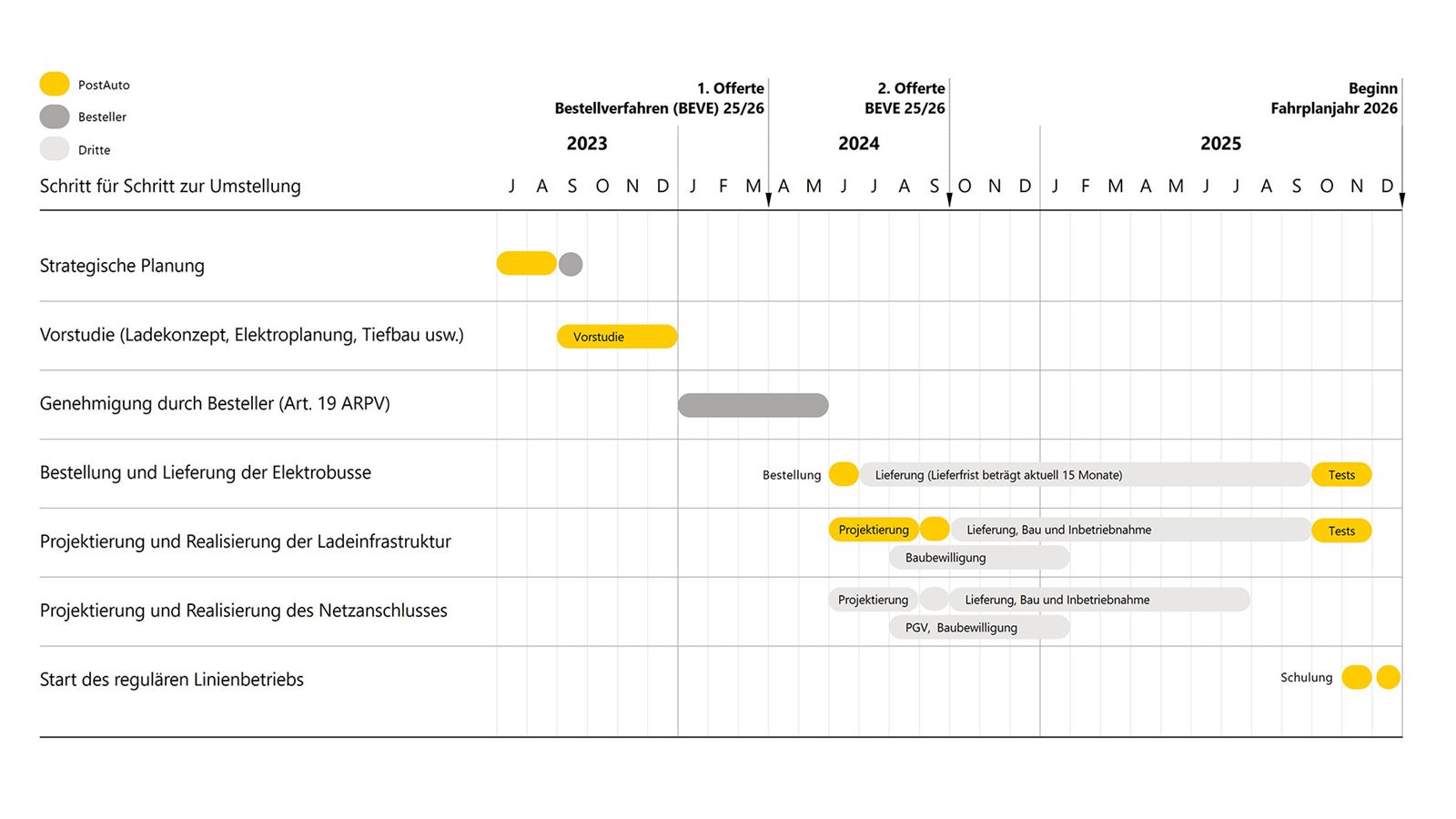From order to first use
It takes two years of lead time before an electric bus comes into service on a route.
Rich Content Section
How the conversion process works
From planning to the start of operations on a bus route converted to electromobility, the process usually takes around one and a half to two years. Whenever possible, the start of operations should be in line with the timetable and ordering processes of the Federal Office of Transport (FOT). The timetable usually comes into effect for a one-year period from the second Sunday in December. It is drawn up for two years at a time.
The current cost of conversion to electric Postbuses
The following information on costs is indicative and varies depending on configuration and the approaches to charging the battery-powered buses. PostBus calculates the detailed costs separately for each bus route.
Battery-powered buses currently cost about twice as much as comparable diesel bus models:
- Standard bus (12-metre battery-powered bus): CHF 600,000
- Articulated bus (18-metre battery-powered bus): CHF 800,000
Maintenance and servicing costs for battery-powered buses (including battery maintenance) are often cheaper than the costs for diesel buses and are in the following range:
- Standard bus (12-metre battery-powered bus): 35 centimes/km
- Articulated bus (18-metre battery-powered bus): 40 centimes/km
Fuel costs per 100 km (including depreciation and maintenance of charging infrastructure, energy, network costs, taxes and service costs) are currently around twice as high for a battery-powered bus as for a diesel bus of a similar size.
- Standard bus (12-metre battery-powered bus): CHF 70/100 km
- Articulated bus (18-metre battery-powered bus): CHF 105/100 km
The refund of mineral oil tax on diesel makes a big difference in costs.
- The mineral oil tax refund was introduced to promote the use of public transport. As a result of the revised CO2 Act, the mineral oil tax refund will be discontinued in the regional passenger transport sector. This will increase diesel costs by around 60 centimes per litre.
- The Confederation also plans to assume 75 percent of the additional investment costs in regional passenger transport for electrically powered vehicles that are purchased to replace depreciated diesel buses. This specific funding will significantly reduce consequential costs in the ordinary ordering procedure.
- PostBus is applying for further support via programmes within the scope of the compensation obligation for fuel importers. For each tonne of CO2, reduced by the use of electric buses, the Foundation for Climate Protection and Carbon Offset,Target not accessible which holds the mandate in this area, currently pays 200 Swiss francs. These revenues are taken into account in the calculation of additional compensation.
The support measures cited run until the end of 2030.





